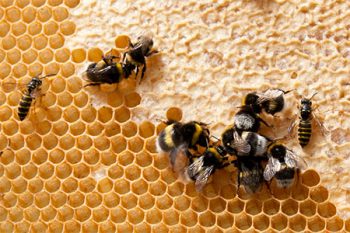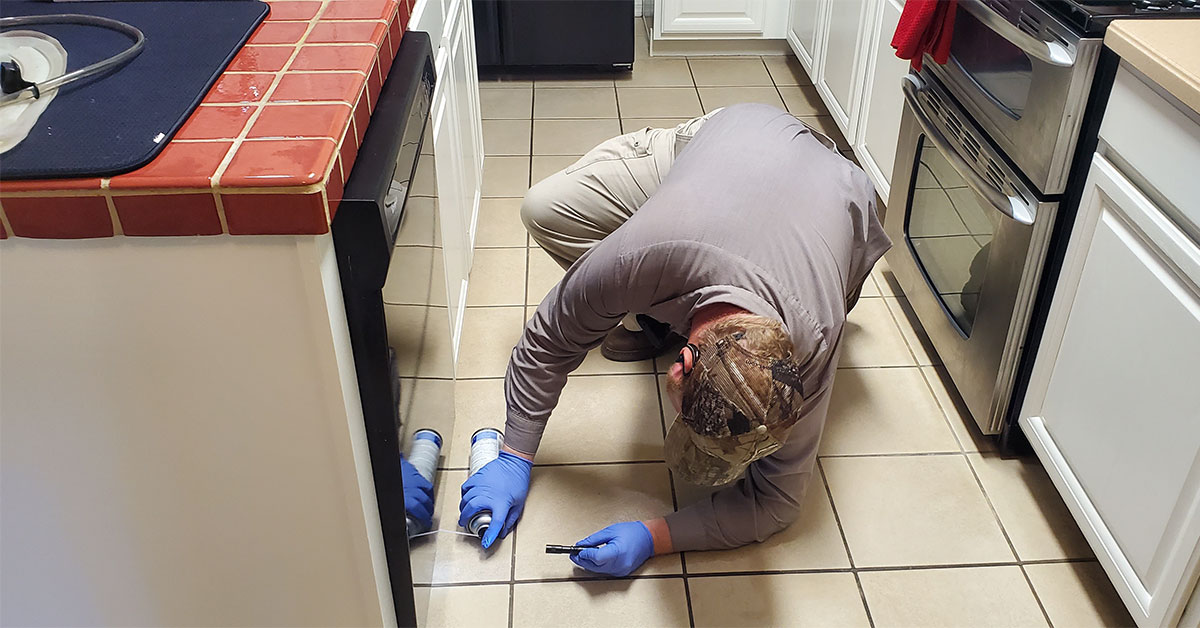How Do I Get Rid Of Bugs On My Patio?
Don’t give up on that vegetable garden just yet! Keep that barbeque scheduled despite the wasps’ nest that has grown exponentially in the crevice of your patio’s overhang! You might not know, but there are many smart ways to prevent pests from ruining your favorite hobbies and activities.
From “cooking” the bugs out of your garden soil to strategically planting herbs to discourage unwanted guests, here are some smart outdoor pest control ideas that you can implement before the wanted guests arrive!
What is soil solarization?
In addition to increasing the soil’s nutrient levels, soil solarization uses heat from the sun to chase away pests, weeds, and bacteria that may be contaminating the soil in your garden. If you’re having trouble growing healthy vegetables and plants, bad soil might be the culprit. Solarization raises the temperature of the dirt, killing heat-sensitive pests and weeds as a result. The process involves thorough irrigation, wetting, and covering the soil with plastic during the hottest 4-6 weeks of the summer. The concentrated heat kills pests and organisms and increases nutrients – a win-win for gardeners!
How Do I Get Rid Of Mosquitoes In My Gutters?
No one wants mosquitos hanging around during a summer barbeque. Not only are they annoying, but they’re also dangerous (globally speaking). Mosquitos love damp areas and require standing water for laying eggs. Moist, debris-filled gutters are a great nesting spot for these disease-carrying pests. Aside from arming your skin with bug spray every day, you can have your gutters cleaned periodically. A side benefit of clean gutters is the prevention of subterranean termite activity.
Don’t Invite Termites Into Your Home
Termites can cause severe damage to buildings. And, honestly, they are just gross. In addition to having your home inspected by a professional pest control service each year, make sure to remove any wood that’s in contact with the ground around your property. Check gutters and downspouts to make sure water is draining away from the foundation, and move any woodpiles away from the house at least 20 feet.
Not All Bees Are Pests


Natural Pest Control
Landscaping that is dominated by one type of plant, even if it’s just turf grass, can encourage pest infestations. Biodiversity within even a single yard does the double duty of repelling pests and attracting beneficial creatures such as honey bees and hummingbirds.
Here are some plants that are natural pest-controllers:
- Try planting chrysanthemums to deter roaches, ants, ticks, silverfish, and fleas.
- Keep Chamomile around to repel flying insects.
- Lavender bushes keep moths, scorpions, fleas, flies, and mosquitos away.
- Lemon balm grows quickly and effectively repels mosquitos
- Oregano repels a variety of garden pests

